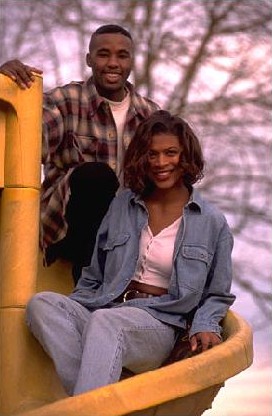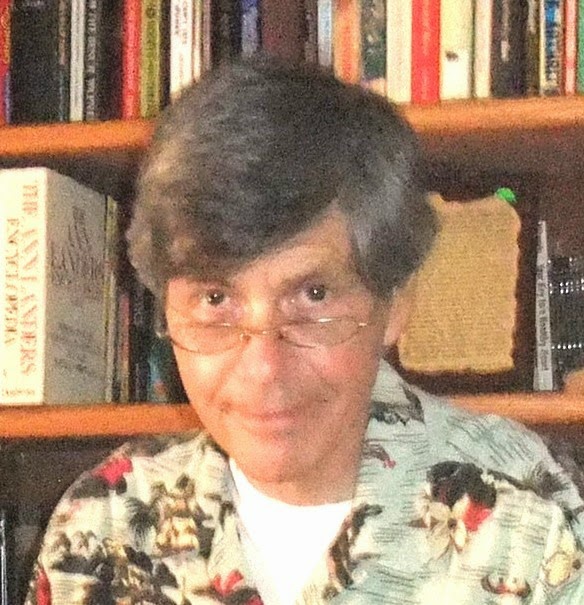How to Forgive and Forget
 Remember Ann Landers? She was the famous advice columnist who had
a daily column in hundreds of newspapers from coast to coast. People
sent her troubling personal problems. She gave advice, often quite good.
Remember Ann Landers? She was the famous advice columnist who had
a daily column in hundreds of newspapers from coast to coast. People
sent her troubling personal problems. She gave advice, often quite good.I will never forget something she said. Near the end of her long and illustrious career, she was interviewed by someone who asked her: After all your years of giving advice, if you could give people just one piece of advice-what would it be?
Being in the advice business myself, I could not wait to hear her response. She thought about it for a moment and then responded: "If I could give people just one piece of advice, it would be to be more forgiving." She had seen too many relationships and families destroyed by resentment, "unforgiveness," and grudges. She had seen too many people destroyed by bitterness and unhappiness, the result of not forgiving another.
Her advice: "Be more forgiving."
All I can say is "amen." If a person were to set out to ruin their own life, there would be no "better" way than through harboring resentment against others.
Resentment (hatred), you see, is a big trauma for a human being. We were never meant to hate. Resentment is a very big trauma. It forms a memory that sticks in your craw. Worse yet, resentment and hatred cut us off from our own good. We think we have a right to judge and resent. We think we can get away with resenting. But we only reap what we sow. When we exercise our right to hate another, we are doing a terrible thing.
It is unfair to the other person. It tempts them to hate us back. Being cut off from life devastates our own being. Many of us were abused, rejected, mistreated or traumatized when we were young. Our being was devastated, and some of us have never fully recovered. We went out in the world seeking love to fill the emptiness. We used people, food, substances and distractions. But none satisfied. When they did not, we felt betrayed, resented them, and then felt all the more empty.
Others of us were not really mistreated or abused and yet we too felt empty, loveless, and went out into the world looking for love. There we discovered abuse. Why is it that we become so empty and feel so unloved?
Why are we so needy that we grovel before others for a few crumbs of approval or settle for the most lowly and sometimes loathsome substitutes for love? It is not what others did to us. Nor is it because of what we were denied or thought we were denied. It is because we became resentful and hateful.
Resentment cuts us off from our connection to our inner ground of good within. Resentment cuts us off from the wellspring of good to which we have access when we are not resentful. It was our own resentment that hurt us more than anything. We feel empty and we then blame those who did something to us. But blame only reinforces and adds another layer of resentment.
Whether we blame others or turn the blame on ourselves, blame is a way of justifying our hate. All it does is keep us tied to bitter memories and cut off from the healing balm of love. Our need for human love is to fill the emptiness from not having inner wholeness and love. That is why what we call love often ends up in fighting and hurt feelings. What we call love is a substitute for the agape, emotionless love we all need. This agape love would correct our childish need for love. True love corrects us of our need for the love from others that does not fulfill. True love sets us free from our neediness. And when we no longer need love, we can give love. And when we found the love of the Father it would immunize us from hurting or being hurt by others. Therefore, I would like you to consider watching for resentment in yourself.
When you see it, stand back and let it pass. You will be glad you did. By learning to be patient with others, you will find the love welling up inside you. You will then be able to be patient with yourself too.
Therefore, dear ladies, forgive your father for not being there for you; and then do not resent your husband. If he is decent, then appreciate his good qualities. If he does not have the mysterious emotionless corrective love, then simply do not resent him. You will then be able to receive the love from within.
Husbands, do not look to your wives for love. Instead of looking for love, have love for others.
And if, through soul searching, yearning and seeking the wisdom you did not have, you should find an inner rapport with intuition and principle, you will then have the ground of being from which you will be able to share love with others. It will not be your love, but the love coming through you.
Roland Trujillo is Director of the Center For Common Sense Counseling and host of the popular Coach Roland internet radio show on Blogtalk Radio. Coach Roland offers solutions and tools for dealing with stress, letting go of baggage from the past, and healing relationships. Roland knows that resentment underlies many of our stress and relationships issues. Roland says: "Love is the answer, but to find love we must let go of resentment."

